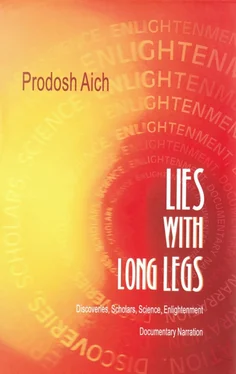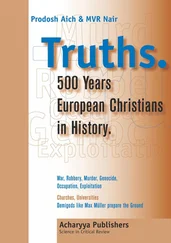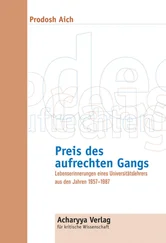1 ...7 8 9 11 12 13 ...16 We have started our search. Our means and ability are modest. So we have begun with simple questions. Who is telling us (hi)stories? How did the narrator get hold of his tale? Our questions, though so simple, seem to work like dynamite. We are also persistent and refuse to be fed the usual answers. Here is the report of our search and on our findings. We present them in detail in order to launch a discussion. And to learn how to ask questions more efficiently. Increasingly more efficiently. Perhaps we can find out ways not to be overwhelmed by the “scientists”, the narrators and the media in our daily life any more.
*****
Our daily life is organised by “information”. Worldwide. A continuously increasing flow of „information“ leading to more and more consolidated social and political order. „Information“ is brought to us not only through the so-called print and electronic „media“, but also by our environment, by the family, by educational institutions, etc. Quite extensively. But, where does „information“ come from, where is it generated, where is it produced, who puts it into circulation, what are the channels, how fast does it reach us from its source? Can we really find out? Is it important to know all the facts?
Apparently we do enjoy being the consumers of „information“, 24 hours a day. We long for knowledge. Knowledge? When do we find time for reflection, thinking and rethinking? Reflection and rethinking? Is this necessary? What is it good for? The warnings of „media“ critics like Neil Postman that we might be “entertained or informed to death” don’t actually help us. Wouldn’t it be a carefree, painless, entertaining, cheerful and beautiful death? What could be wrong about it? But we cannot escape the facts even if we wanted to. Escapists only exist in “reality shows”. Do we really have to get out, do we really have to consume all the information that thrown at us?
The communication network is global and extensive. The quantity of “information” increases day by day and its transmission becomes more and more complicated. Due to the speed of technological developments in the field of data transfer the flow of „information“ is becoming more and more unmanageable. Global “information” is provided unbelievably fast, 24 hours a day. We spend precious time learning to use the latest technical gadgets. Do we realise that we are caught in the “information trap”? Can we spring this trap and be free? How?
We don’t have any standard recipes. If we had found any, we would not have presented them here. That would have been contra-productive and irresponsible. But we are surely trying hard not to get caught in the “information trap”. We trust that our mutual efforts and the continuous exchange of experience would keep us away from this trap. We build our research on that perspective.
We do not know exactly where “information” about people, places, institutions etc. is produced and which pieces of “information” are distributed and reproduced. Why are they produced and why are they made available to more and more people? Do we have any idea about the total amount of „information“ that is produced? Or which parts are factually made available to us? Are we able to judge the quality of „information“? In our daily life we are swamped by „information“. We can see the flood coming, we are able to foresee the impact and yet we cannot escape it even if we really wanted to. And if we escape once we still find ourselves caught in the flood—indirectly. Why should we buy this “flood of information” and waste our resources and precious time? And don’t we know that each piece of „information“ is produced with an objective? Don’t we really know that?
And what is „information“? Is “information” everything that is supplied by the “media”? Does it differ? In it’s content, and quality? How can we learn to differentiate, to evaluate “information”? Is „information“ just “news”, an “answer” to a query, an “instruction” or even an element of “knowledge” or a mixture of everything? Where are the answers? The vendors of the information-industry won’t give the answers. They have no intention of doing so. We can turn to “references”, of course. Are they helpful?
What are the “sources of reference”? Are they all the same or are they different perhaps? Since when are they available? Who are their publishers? Who compiles the catchwords? Are all possible catchwords included? Are there omissions? What is omitted? And how can the authors of the “references” be sure that their knowledge is correct? Are they independent or do they have to depend on saleability only? Which are the sources of their knowledge? Do they check the quality of their sources? How do they know whether the assumed sources are dependable or are they just set up? Are the “makers” of “sources” related to the “information-industry”? Or even a part of it? We do not presume to find answers to all these questions. But we do think that we all should try to search for answers. We all together. Is there any alternative to fighting the very present danger of becoming an irresolute tool, a virtual robot of the “information-industry ”?
“Information” does not drop from heaven. It is produced and then offered to us for use. The range of the carriers, usually called “media”, is wide. So it seems. We have maintained earlier, probably without provoking the slightest contradiction, that „information“ is canalised. The network of the „media“ is becoming increasingly dense. And this density is labelled as progress. The denser the “Communication” of a country, the more “advanced” its society. This is the message and we tend to accept it. We normally do not give many thoughts to the messages, to their carriers, to the media. We fixatedly accept the prepared contents; debate them with meticulousness and passion. That’s it. We are seldom strong, curious and persistent enough to reflect about the carriers, their routes, their producers and the “information-industry”. And what would happen, if the „information“ was devised, false or forged? Wouldn’t we be mislead intentionally? Who would gain from misinformation, who would lose? What about “power”, about exercise of “power” by “manipulation”? Who administers “power”?
The increasing rush of our “jet age” life seldom gives us enough time to first check the sources, the quality of the sources of “information” and only then look into its contents. According to our research this has become common practice everywhere—at universities, in publishing houses and in the editorial rooms. It is believed that “reliable” human beings or institutions interact with “reliable” counterparts only. And we are all trustworthy people! Aren’t we? Should there be any room for scepticism then? What is more: should we go around doubting everyone and everything? Where would such an attitude lead us? Nowhere? Would there be no movement, no progress? Movement seems to mean progress. Movement is a must. And we all know that only “a rolling stone gathers no moss”. Nobody in a “modern” society would like to gather moss.
So we have learned to internalise values based on trust and intuitive wisdom. We know that there are serious agencies and there are other agencies. There are serious sources and there are other sources. There are serious reference books and there are others. There are serious scientific publications and there are others. Who spreads this philosophy? How does one differentiate and identify the serious ones? Do we have time to put such rudimentary, superfluous and silly questions? Doesn’t everybody take for granted, for example, that the German Press Agency (DPA) is more serious, more dependable than non–German Press Agencies, like Tass, Tanjug, Terra and others?
Читать дальше












